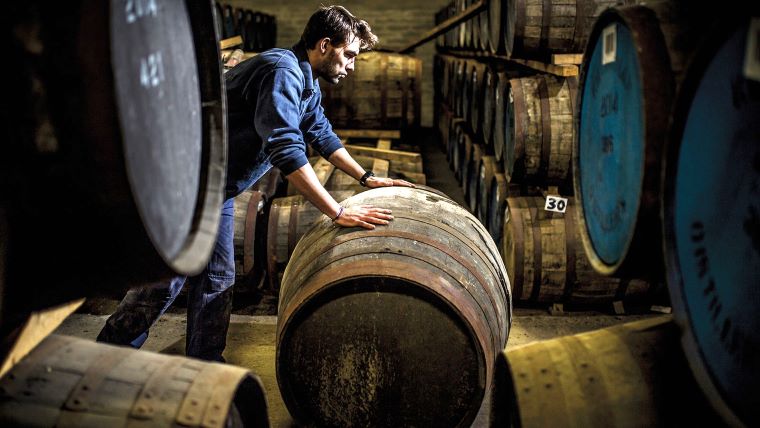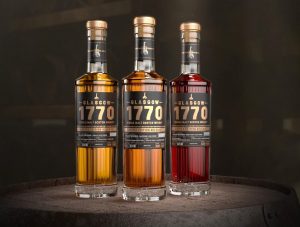
The Scotch whisky industry has seen something of a baby boom over the last ten years, with no fewer than 30 new distilleries opening – a dramatic growth spurt for an industry which only saw 6 new distilleries open in the 20 years prior. While most of these new entrants are still at least a year or two away from being able to legally bottle whisky (the spirit must mature at least 3 years in oak casks), a few of them have already started to hit the market. Here are some of the new kids on the block, with actual whisky hitting the street.
When the Glasgow Distillery opened in 2015 it became the first distillery to operate in the city in over 100 years. Founded by Liam Hughes and Ian McDougall, the distillery was awarded “Scottish Whisky Distillery of the Year 2020” in the Scottish Whisky Awards. The distillery primarily produces peated and unpeated double-distilled single malts, but also dedicates 1 month of production to triple-distilled spirit. The whisky has been named 1770, in honour of Glasgow’s first distillery, Dundashill, which opened that year. The distillery has 3 whiskies in its core range: Original, Peated and Triple Distilled. The distillery is only offering virtual tours at present.
Is there anything more romantic than a Scottish island distillery? The founders of the Isle of Raasay Distillery, Alastair Day and Bill Dobbie, certainly agreed with that sentiment, having originally planned to open in the Borders. The distillery was built next to the Victorian Borodale House, which serves as a hotel, and has spectacular views looking towards the Isle of Skye. The facility produces a 50/50 mix of peated and unpeated single malts, with some of the barley, including some rare strains, grown on the island. Raasay’s single malt whisky has been released in small batches from spirits distilled, matured, and bottled on the island.

Lindores Abbey Distillery was founded on the site of a ruined abbey of the same name.
It was the site of the first recorded manufacture of whisky anywhere in the world. In 1491, King James IV of Scotland permitted “Friar John Cor of Lindores Abbey being granted ‘eight bolls of malt wherewith to make acqua vitae’.” Work on the distillery and visitor center, founded by Drew & Helen Mackenzie-Smith, began in 2013, but couldn’t be completed until 2017 due to discoveries made during excavation of the site. The legendary late Dr. Jim Swan was a consultant for the distillery, which began producing single malt spirit in December of 2017. Since 2000, the distillery has been exclusively producing with locally grown Lindores barley. It also produces an Aqua Vitae inspired by whisky’s origins at Lindores Abbey, as well as single malt bottled at 46 per cent.
Lochlea Distillery, unlike all other new distilleries, decided to fly under the industry and consumer radars, that is until they had 3-year-old whisky in late 2021. Lochlea was founded in 2018, just south of Kilmarnock, Ayrshire, by beef farmer Neil McGeoch. The farm dates from the 1700s and was the home of a young Robert Burns during his formative years, 1777-1784. The distillery only uses estate-grown barley and produces a more full-bodied spirit than traditional Lowland distillers. It is filled into predominantly fresh bourbon and sherry casks, but also a dozen other types of casks. The distillery’s inaugural release, a limited edition, was released in the Fall of 2021.
Kingsbarns Distillery was founded in 2014 by the Wemyss family, who have been operating as an independent bottler, Wemyss Malts, since 2005. Plans were first hatched to open the distillery on an 18th century farmstead near St. Andrews in 2008. The distillery began production in 2014, with the first casks being filled in 2015, primarily ex-Bourbon, but also STR (shaved, toasted and re-charred ex-wine barriques) and sherry casks. The first whisky was released in 2019, with a few other limited editions following it. The first core release, Balcomie, is a 5-year-old matured in ex-bourbon and oloroso sherry casks. The distillery is open to the public and is the only one that I am aware of with its own doocot (Scottish for dovecot). ~ Story by Tom Langlands




















Leave a Comment